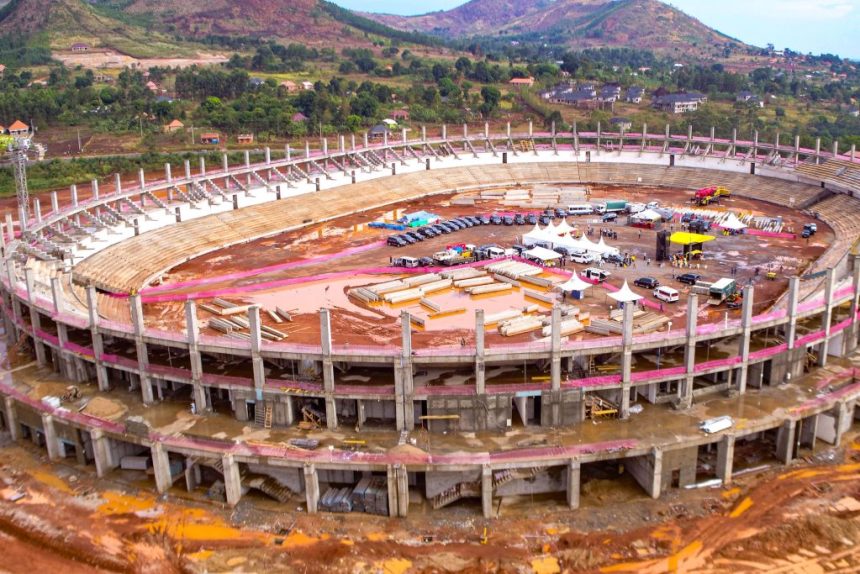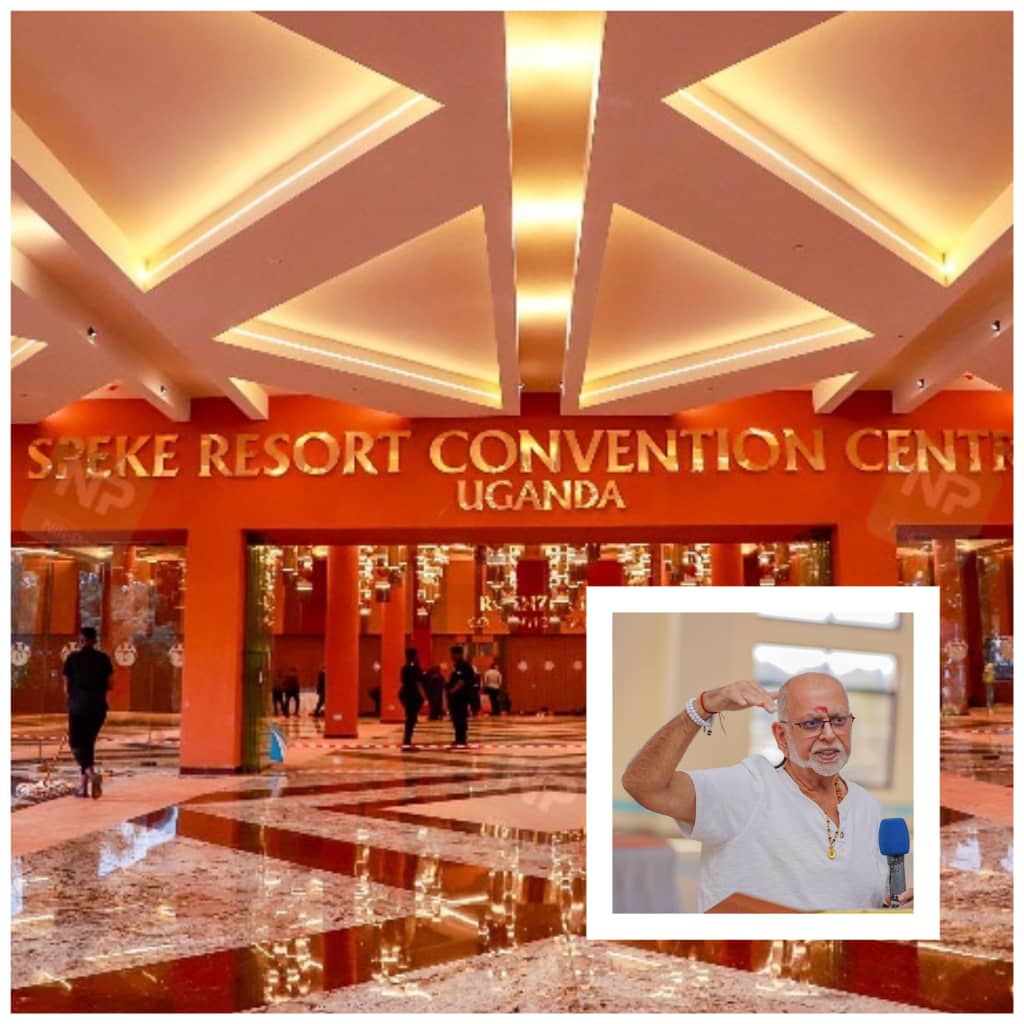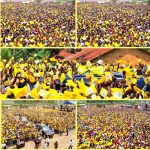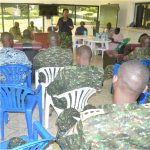Published on 05/10/2025
Officials say the Akii Bua Stadium, currently under construction in Lira City, is more than just an architectural piece but a highlight of the National Resistance Movement’s (NRM) commitment to regional equity and development.
The stadium is fast becoming a flagship of the government’s vision to bring transformation, economic vitality, and pride to the sub-region.

To NRM leaders and local officials, it reflects a deliberate alignment of national priorities with grassroots impact.

Speaking during a site visit, Lira Lord Mayor Sam Atul said the stadium is a convergence of heritage and ambition.
“Akii Bua brought glory to our land. Today, we channel that legacy toward building infrastructure that changes lives,” he said.
According to Atul, the vision goes beyond sports: it is about restoring dignity, fostering opportunity, and staking Lango’s claim in Uganda’s future.
He added that Lango’s contributions to national athletics remain strong, pointing to Allan Okello, the Lira-born footballer now featuring for Uganda’s national team, as proof that the region can and should be a cradle for champions.
“This isn’t just a stadium; it is a stage for new dreams,” Atul remarked.
Under the NRM philosophy of inclusive development, the construction of Akii Bua Stadium is following a “buy and build local” approach.
Mohamed Nazir, the Project Manager at Samaco Construction, disclosed that 30 percent of the project was complete.
Though the formal completion schedule sets January 2027 as the deadline, Nazir projects October 2026 as the likely finish date.
On the workforce, Nazir reports that 950 workers are currently employed, with over 90 percent drawn from Lira.
Materials, too, from sand and granite to cement and steel, are sourced locally.
Suppliers from Lango and the surrounding areas provide multiple lines of critical inputs. Only in instances of specialty materials unavailable in Uganda does the project source imports.
“We build with our own hands, from our own land,” Nazir said, an approach he insists maximizes social impact and economic recirculation.
For NRM leaders, the stadium is one node in a broader infrastructure web.
Resident City Commissioner Lawrence Egole described the investment as a connective strategy — not isolated infrastructure, but a deliberate network of roads, services, and facilities.
The project includes a 60km road linking Lira to Gulu Airport via Oboke and Bobi, plus feeder roads around the stadium.
These are intended to stitch the stadium into the fabric of the region’s growth and access.
Egole emphasized that Lira’s growth has been visible: improved hospital services, rising business activity, and stronger fiscal performance. He noted proudly that Lira now ranks among the top five highest revenue-generating cities in Uganda, illustrating how NRM infrastructure policy is already bearing fruit.
“This stadium is a public investment that signals a new era — one where Lango is not left behind,” he said.
Once completed, the stadium — with its capacity for 20,000 spectators — is expected to activate several sectors.
Officials foresee an influx of sports tourism, growth in hospitality and retail, and increased regional trade.
Every match or event will generate demand for lodging, food, transport, and entertainment — a cycle designed to energize the local economy.
Local entrepreneurs are already positioning themselves around the stadium precinct. New eateries, guest houses, and shops are emerging in anticipation of event-driven demand.
In parallel, the project is seen as a major lever for talent development. Recent success by the Lango football team, which won the national ‘Drum’ tournament, underscores the region’s athletic potential. With a world-class stadium, local leaders believe they can systematically identify and train promising youth for national and global performance.
“We’ve always had the stars — they just lacked a stage,” said Mayor Atul. “Akii Bua Stadium gives us that stage.”








